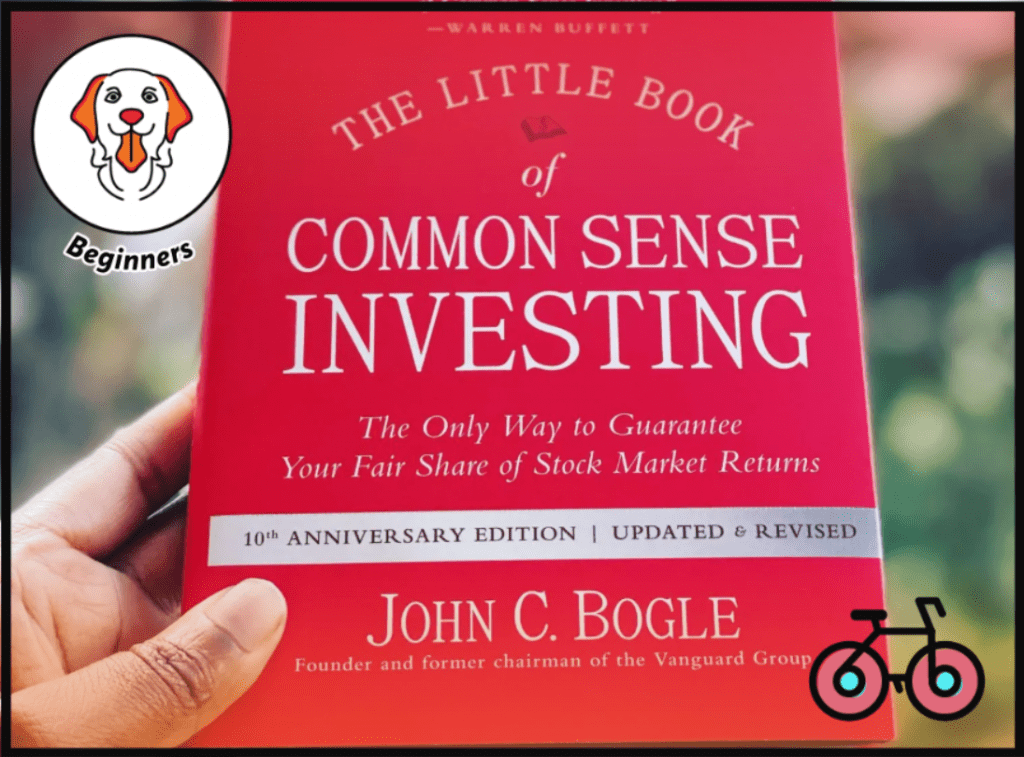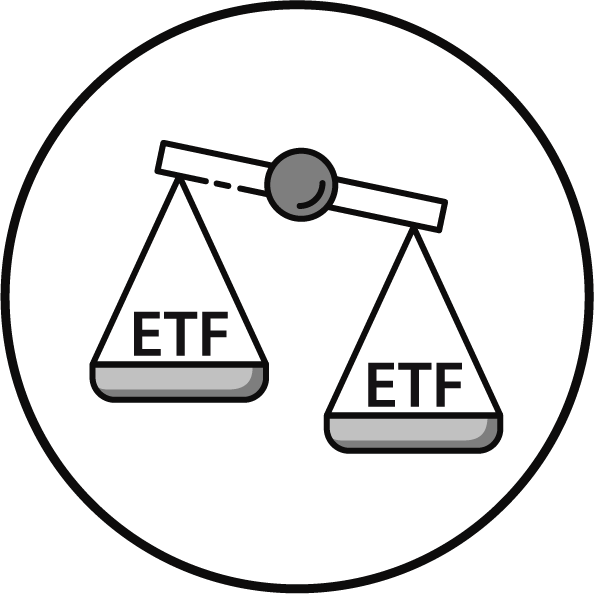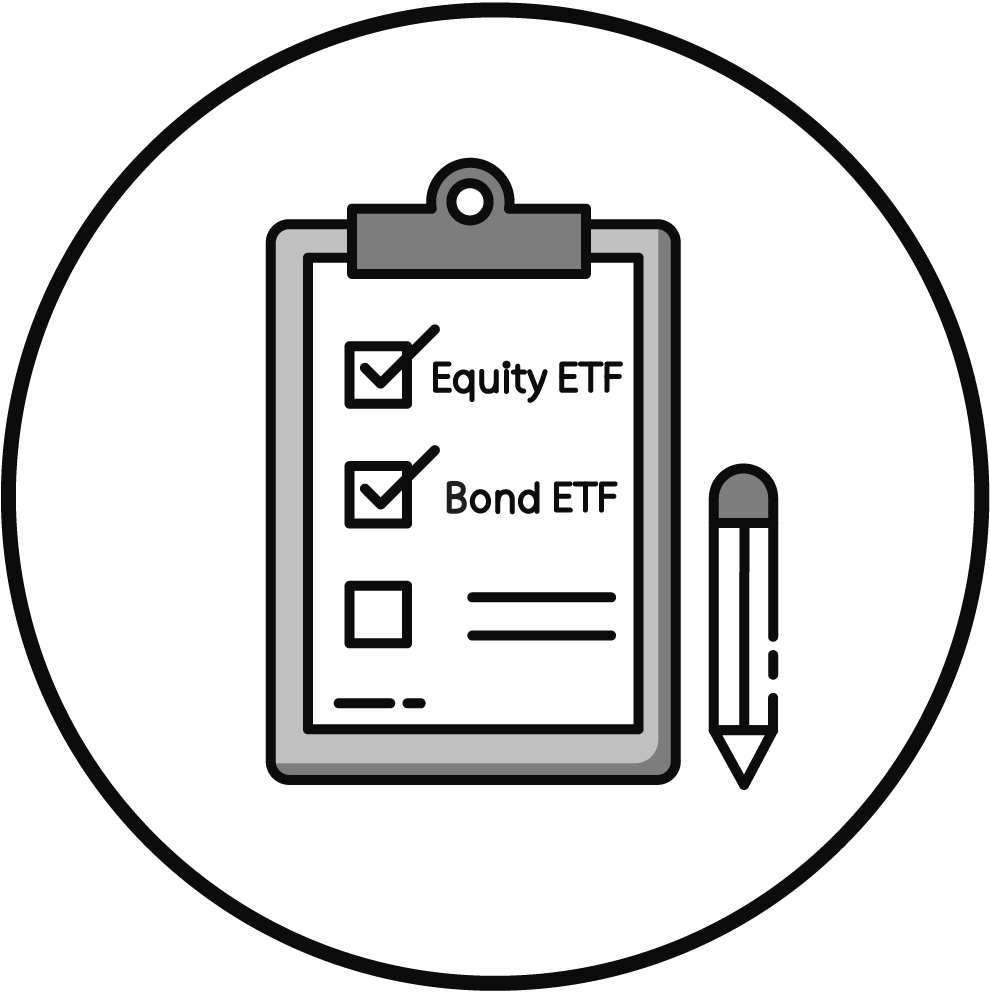The Little Book of Common Sense Investing (Book Review)

The Little Book of Common Sense Investing by John C. Bogle, published in 2007, is an account of why the author is in favor of using index funds when investing.
In essence, the advice is simple: invest in a broad market index fund and hold for the long term.
But Bogle goes into detail about why such a strategy will produce above-average results and what factors affect your investment the most.
Although his examples are based in the US, the same principles can be applied to investors all over the world.
Let’s have a closer look at Bogle’s advice and how it could apply to you.
KEY TAKEAWAYS
- John C. Bogle is one of the most important figures in the financial world. He created the large investment firm Vanguard, which is the only company of its kind that is owned by its investors. He also created the first-ever index fund.
- Even after his death in 2019, Bogle is still revered by investors all over the world. His fans are nicknamed ‘The Bogleheads’ and are some of the wisest and the most successful individual investors.
- The Little Book of Common Sense Investing starts with a parable that explains the way the stock market works and how to get your fair share of wealth.
- He explains why Active Funds underperform. Bogle states that most readers won’t implement his simple portfolio because market timing is too tempting.
- For this reason, he suggests putting 95% of your savings into a “serious money account”, which is your index fund. The other 5% makes up your “funny money account”.
Here is the full analysis
The grim irony of investing, then, is that we investors as a group not only don't get what we pay for, we get precisely what we don't pay for. So if we pay for nothing, we get everything.
John C. Bogle
JACK BOGLE INTERVIEW ON SIMPLE INVESTING
SNAPSHOT
So, What Happened to the Gotrocks?
The Little Book of Common Sense Investing starts with a parable that explains the way the stock market works.
Bogle asks us to imagine that one family, called the Gotrocks, owns the entire US market.
Each member has an index fund, so they all earn the same annual percentage on their money.
But one day, a ‘helper’ approaches some of the Gotroks and states that they could outperform the other family members.
This fund manager charges a fee, and the Gotroks begin to trade shares among each other.
Soon, more ‘helpers’ arrive, and the wealth is suddenly distributed unequally.
Even though some Gotroks are now wealthier, the family as a whole no longer performs as well as before. This is because the helpers are now taking a cut.
They now only receive the market return minus the helpers’ fees. Thus, they were all, on average, better off without these managers.
Similarly, we investors as a group earn what the market returns minus the various fees we have to pay.
❤️🐶 Shop & Support - Celebrate our 4th anniversary! 4️⃣🎂
Spread the Golden Retriever Wisdom Across Europe & the UK 😎
Banker On Wheels is 4 years old! To celebrate our anniversary we have launched the official merchandise store – Shop.Bankeronwheels.com. You can now get your favourite Golden Retriever, or your factor tilt on a coffee mug or a T-Shirt while supporting our cause! All profits are reinvested into creating more educational content. Alternatively, you can also buy us a coffee. Thank you for all your support ❤️
YOUR FAIR SHARE
How the Stock Market Actually Works
The Gotroks parable illustrates clearly how the stock market actually works.
The fact that we earn the market average minus fees is obvious, but it’s not something most of us think about often.
In fact, I hadn’t fully realized the implications of this until reading about it in the book.
Bogle reminds us that every time we win in the stock market, someone else loses.
Earning more than average is a loser’s game because it is very hard to do over the long term, especially because speculation usually comes with high fees.
However, earning our fair share is easy with the use of index funds.
By using this strategy, we can outperform almost everyone who uses higher-fee products.
It takes wisdom to know what we don’t know
John C. Bogle
How Many Fund Managers Actually Outperform the Market?
Bogle analyzes the results of mutual funds and how often they do better than an S&P 500 index fund.
He found that, within 36 years, almost ⅔ of the funds studied went out of business.
Only one in 14 outperformed the market over this time period. What’s more, many of the ones who did only outperformed early on, and a change in management or a growth in size has slowed their success.
Thus, any investors who entered these winning funds in the second half of the time
period studied have experienced subpar results.
Fees and Taxes: The Reason They Underperform
The reason the deck is stacked against mutual funds is that they charge fees many times higher than index funds.
As such, they must already overcome a significant hurdle before they can simply break even.
What’s more, they are often tax-inefficient because of the amount of trading that goes on.
If you hold your funds in a taxable account, you should pay special attention to your fund manager’s strategies because you might have to spend a significant chunk of your returns on taxes.
In contrast, the index fund is usually remarkably tax-efficient because trades are kept at a minimum.
Buying funds based purely on their past performance is one of the stupidest things an investor can do.
John C. Bogle
Market Timing: The Reason You Underperform
Did you know that most people don’t even come close to earning the returns their funds advertise?
I was surprised by this information, but it makes sense when you consider the emotions that go along with investing.
The most heavily promoted funds are the ones that have recently done well.
At that point, investors all start to pile in, in the hopes that this superior performance will be sustained.
But more often than not, this isn’t the case.
Reversion to the mean takes hold, and investors who got in too late take the hit.
Once performance has declined, they decide to sell, often at a loss.
For this reason, most people actually do worse than their funds’ returns seem to suggest.
Are Helpers Ever Helpful?
In general, the author believes that most people can run their own portfolio.
Simply hold one broad-market index fund and one bond index fund, and that’s all you’ll need.
As seen in the Gotroks example, consultants as a group reduce the total gain of all investors.
Thus, you shouldn’t pay someone else a 1-2% fee to pick stocks or funds for you.
However, Bogle states that good advisors have other functions.
They can help you optimize your financial life because they can make your portfolio tax-efficient, and they can prevent you from making bad decisions.
If you need an advisor, choose someone who charges by the hour and doesn’t take a cut of your portfolio.
What Should You Do Now?
The last chapter focuses on helping you make some decisions about the future, now that you understand how the investment world works.
Bogle states that most readers won’t implement his simple portfolio because market timing is too tempting.
For this reason, he suggests putting 95% of your savings into a “serious money account”, which is your index fund.
The other 5% makes up your “funny money account”.
You can choose to invest in individual shares and mutual funds with this portion.
Over time, you should track the two accounts to see which one performs better over one, five, and ten years.
Bogle is confident that your “serious money account” will do best in the long run.
SHOULD YOU BUY THIS BOOK?
How we rated the book
Our overall rating comprises five key considerations, including suitability for beginners and European and UK readers.
1. Beginner-Friendly
2. Investing Concepts
3. Investing How-to (Europe)
4. Financial Freedom Principles
5. Personal Finance Know-how
1. Beginner-Friendly
2. Investing Concepts
3.Investing How-to (Europe)
4. Financial Freedom Principles
5. Personal Finance Know-how
From Bankeronwheels.com
Get Wise The Most Relevant Independent Weekly Insights For Individual Investors In Europe & the UK
Liked the quality of our guides? There is more. Every week we release new guides, tools and compile the best insights from all corners of the web related to investing, early retirement & lifestyle along with exclusive articles, and way more. Probably the best newsletter for Individual Investors in Europe and the UK. Try it. Feel free to unsubscribe at any time.
🎁 In the first email, you can download a FREE comprehensive 2-page checklist to construct & monitor your portfolio and clean up your personal finances.
Rating justification
The Little Book of Common Sense Investing by John C. Bogle is an excellent account of why the index fund outperforms almost all other investments in the long run.
The author explains the stock market in detail and shares his view on how the average investor can achieve above-average results.
Although the information is easily understandable for everyone, it is targeted at people ready to invest or already investing.
Someone at the very start of their career or unsure about how to start saving money might find the information too much.
Bogle is an American and therefore writes for a US audience.
Thus, the investment advice isn’t specific to European countries, even though the principles apply regardless.
The book shines when it comes to explaining investment concepts congruent with the financial independence principles.
While Bogle is a giant in this field, he ends each chapter by deferring to other experts, who echo his views.
His humility and desire to help each investor achieve their fair share is what makes his work shine.
Good Luck and Keep’em* Rolling!
(* Wheels & Dividends)

Broker Safety: Should You Rely On Broker Insurance?

Dodl By AJ Bell Review – AJ Bell’s Younger Brother

Vanguard LifeStrategy Review – A Retriever In A Babushka Doll

Why Do Portfolio Managers Care About Factors? It’s Not What You Think.

Money Market Funds: Are ETFs The Best Bang For Your Buck Or A Risky Ride?

4 Things I Learned In 4 Years Of Running A Finance Blog
HELP US
🙋 Wondering why finding honest Investing Guidance is so difficult? That’s because running an independent website like ours is very hard work. If You Found Value In Our Content And Wish To Support Our Mission To Help Others, Consider:
- 📞 setting up a coaching session
- ☕ Treating us to a coffee
- 🐶 Purchasing Our Official Merchandise
- ❤️ Exploring Other ways to support our growth, both financially and non-financially.
DISCLAIMER
All information found here, including any ideas, opinions, views, predictions expressed or implied herein, are for informational, entertainment or educational purposes only and do not constitute financial advice. Consider the appropriateness of the information having regard to your objectives, financial situation and needs, and seek professional advice where appropriate. Read our full terms and conditions.






















